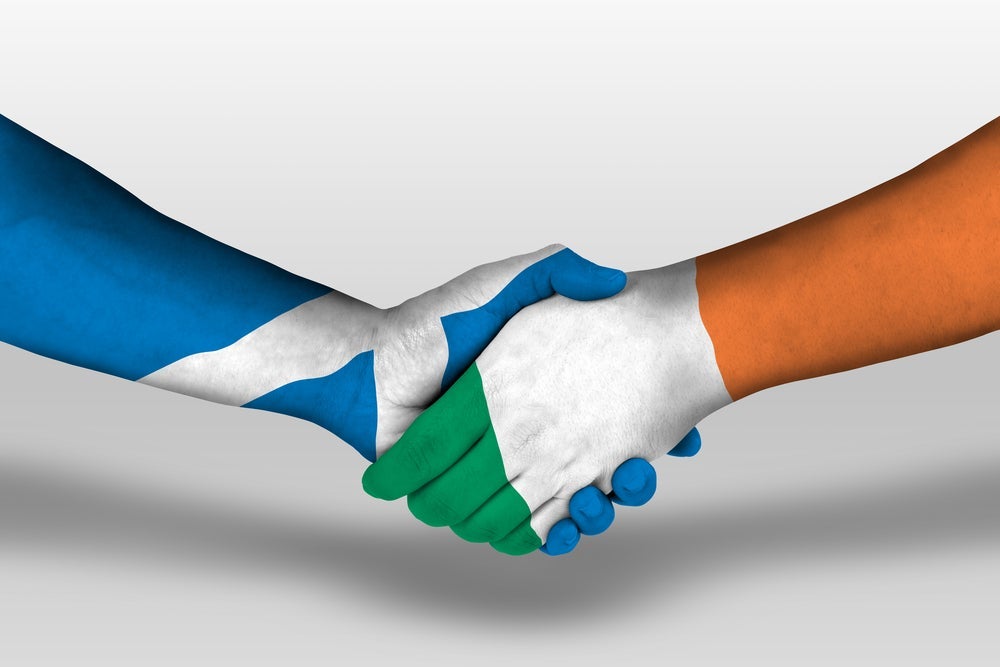
A common personality trait I have noted with famous and beloved Scots is a tendency to be humble. The nation prides itself on the down-to-earth qualities of its most famous sons and daughters, which means that the likes of musician Lewis Capaldi or comedian Billy Connolly come across as remarkably humble whenever they are interviewed. Anyone getting ideas above their station would be seen as betraying their roots, more often than not of the working class variety, and showing a side to the country that doesn’t truly represent its people.
Therefore, ‘the bams’ (Scottish slang for obnoxious show-offs) tend to draw particular ire from the Scottish masses. Any praise and attention must come from external sources, and any public exchanges must be packed with self-deprecating humour and a near-denial of one’s talents.
However, if a referendum does go ahead and if Scotland does gain independence, Scots may need to get more comfortable with showing off. In order to not just maintain a high level of attractiveness to foreign investors but also to secure key trade allies, Scotland will have to learn to bang its own drum.
Scotland has a strong FDI record
Scotland currently has the best regional track record for foreign direct investment (FDI) in the UK outside of London, attracting 122 FDI projects in 2021, accounting for 12.3% of all UK FDI projects. This impressive trend of Scotland sitting second to only London within the UK has run for seven consecutive years.
This is all very promising for an independent Scotland. However, the impact of independence – economic, social and political – is still widely unknown, and the country would do well to learn lessons from other countries. A Celtic cousin that could offer some sound advice when it comes to FDI is Ireland.
The island of Ireland – both Northern Ireland and the Republic of Ireland – has an enviable reputation in investment circles as something of a charmer – likeable and with an innate knowledge of when to lean on its heritage in order to sign deals with investors that perhaps romanticise that heritage.

US Tariffs are shifting - will you react or anticipate?
Don’t let policy changes catch you off guard. Stay proactive with real-time data and expert analysis.
By GlobalDataThese generalised traits certainly should not discredit the very tangible and robust FDI offering the island of Ireland has. Investment Monitor has reported on the top five cities of Ireland and their specific expertise and published a city profile on Belfast in Northern Ireland. For relatively small cities, these locations have outstanding records when it comes to attracting investment and carving out lucrative niches.
Speaking on the affinity between Scotland and Northern Ireland, Steve Harper, executive director of Invest Northern Ireland, said: “It is down to our personalities. All the Celts are outgoing people. Certainly, our American investors love the fact that we are friendly and the work ethic is really, really strong.”
US investors do indeed love both Scotland and the island of Ireland. US companies accounted for 59% of the Republic of Ireland’s FDI projects during 2021, according to the Ireland EY 2022 Attractiveness report.
Furthermore, Scotland pulls more investment from the US than the rest of the UK does. According to the Scotland EY 2022 Attractiveness report, the US was the leading origin of inward investment into Scotland in 2022, with the US accounting for 29.5% of Scottish FDI projects, as opposed to 24% for the UK.
Bleed that heritage dry
The island of Ireland could be using shared heritage to strengthen relationships with US investors. For this, Ireland appears to have a larger pool of heritage-linked investors than Scotland would be able to access.
When it comes to recognising British and Irish ties, US citizens identify as Irish by a strong majority of 33.4 million. English ranked second with 23.1 million and Scottish third with 5.3 million.
It is this widespread emotional link that Irish investment promotion agencies have learned to cultivate. In investment circles there are stories of potential investors being shown videos of the Titanic with Irish folk music tinkling in the background, as they are served whiskey and their surname is traced back to Irish clans.
As corny as it may seem, this tactic seems to work. The US was Northern Ireland's second most important export market between October 2020 and September 2021, behind the EU, although it should be added this is down to more than a hearty Irish welcome.
Of course, many countries like to proudly display their heritage when courting investors, but Scotland could follow Ireland’s example in a way that England can’t because of its synonymy with colonialism. Although Scotland was a willing participant in British imperialism and saw its wealth increase as a direct result of the exploitation of the British colonies, the country is sometimes characterised as a colony itself, as Dr Malory Nye, a professor at the University of Glasgow, explains.
“In many respects, Scotland is one of England’s last colonies, but as a colony Scotland did a lot less worse than many other parts of the empire," he wrote in an August 2017 essay. "It is only in recent years that Scotland can begin to understand the rapaciousness of British dominance, when Scotland’s oil production has kept the economy of the UK afloat.“
While many would view this opinion as contentious, it is a narrative that England cannot replicate and it could provide Scots with a warmer opening when it comes to conversations with would-be investors.
An independent Scotland would face myriad challenges and would need to exploit every advantage possible to establish its newly free economy. Hamming up its rich history and culture, and linking them to potential FDI source markets, would be a wise route to take. There is no reason, after all, why Ireland's successes can't be emulated on the other side of the North Channel of the Irish Sea.







